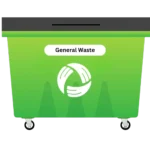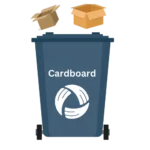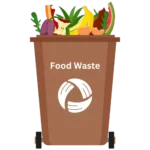Hospital waste management
Get a FAST & FREE quote for hospital waste collection
Just enter your postcode…
Get a FAST & FREE quote for hospital waste collection
Just enter your postcode…
Start saving now
Choosing the right provider for your hospital’s waste collection is essential for maintaining hygiene standards, ensuring compliance with healthcare regulations, and keeping costs under control. Here’s why hospitals across the UK trust us to manage their waste:

We offer hospital waste collection services across the UK, supporting everything from small private clinics to large NHS hospitals. No matter your location, you’ll have access to professional, reliable, and compliant waste services.

We work exclusively with experienced and fully licensed clinical waste providers who understand the specific requirements of healthcare environments. Your hospital waste is handled safely and responsibly, from infectious waste to sharps and pharmaceutical disposal.

Our team will prepare a bespoke quote tailored to your hospital’s specific waste streams and collection needs. We offer competitive pricing without compromising on compliance, safety, or service standards.
Hospitals and healthcare facilities generate a wide range of clinical waste that must be collected, handled, and disposed of correctly. Having a reliable service in place helps protect staff and patients while ensuring you remain compliant with healthcare regulations.
Here’s how to get started:

Enter your postcode above and tell us about your hospital’s waste collection requirements, including the types of waste you need to dispose of.

Our experts will review the details and prepare a tailored quote based on the volume and nature of your clinical waste.

Once you’re happy with the quote, sign your hospital waste collection contract to activate your service and schedule your collections.
Hospital waste isn’t just limited to clinical or medical materials. It also includes everyday waste such as packaging, paper, food, and hygiene products. From wards and treatment rooms to kitchens, admin areas, and public spaces, waste is generated across all areas of a hospital.
Effective waste segregation and disposal is essential to keep healthcare environments running smoothly, meet legal requirements, and reduce environmental impact.
Below are the key waste streams commonly managed in hospitals and healthcare settings:

Clinical waste includes items contaminated with blood, bodily fluids, or infectious materials. Common examples are dressings, swabs, gloves, and PPE used in patient care. Clinical waste poses a risk of infection and is usually disposed of through incineration or specialist treatment methods. Find out more in our clinical waste collection page.

Hospitals generate a range of recyclable materials such as clean paper, cardboard, plastic bottles, and aluminium cans, particularly in offices, kitchens, and admin areas. These items need a commercial dry mixed recycling collection, to keep them separate from any clinical or contaminated waste.

Sharps waste includes any device or object used to puncture or lacerate the skin. This category is highly hazardous as it can cause injuries and spread infections.
Sharps include needles, syringes, blades, and lancets. They are usually disposed of in rigid, puncture-resistant containers.

Hospitals receive high volumes of deliveries and supplies, generating large amounts of cardboard packaging. Commercial cardboard recycling collects clean, uncontaminated cardboard that can be collected separately for recycling to reduce waste volumes and cut commercial waste collection costs.

Sanitary waste collection includes items such as nappies, incontinence pads, and feminine hygiene products. These must be collected and disposed of in accordance with regulations to ensure hygiene and prevent unpleasant odours in patient-facing or public areas.

Commercial Food waste is common in hospital kitchens, wards, and staff canteens. It includes leftover meals, food prep waste, and out-of-date ingredients. Collecting food waste separately helps reduce contamination of recyclables and supports anaerobic digestion facilities, diverting waste from landfills.
Hospitals generate a wide range of waste, but small changes in day-to-day operations can lead to significant reductions. Here are practical ways to cut waste, save money, and keep sites running efficiently:

Ordering the right amount of supplies helps reduce waste from expired or unused items. By keeping a closer eye on what’s used regularly and avoiding bulk buying where it’s not needed, hospitals can cut down on unnecessary packaging and reduce the amount of stock that ends up being thrown away.

Well-labelled, colour-coded bins placed in the right areas make separating waste correctly easier for staff, patients, and visitors. This boosts recycling rates and reduces contamination, making collections more efficient and cost-effective.

Switching to digital systems, like electronic health records and digital admin processes, helps reduce paper waste throughout hospitals, especially in back-office and clerical areas.

Accurate meal forecasting based on patient numbers helps reduce kitchen waste. Leftover food can be donated where regulations allow, and unavoidable food waste can be collected separately for composting or anaerobic digestion.

Making sure staff understand what goes in each bin and why proper segregation matters is key to reducing landfill waste. Regular training, simple signage, and quick-reference guides can all support long-term improvements.
We provide reliable hospital waste collection services nationwide, supporting NHS trusts, private hospitals, and specialist clinics with efficient, compliant waste management. No matter where your healthcare facility is based, we can arrange tailored collections to meet clinical and non-clinical waste needs.

Our trusted providers deliver clinical and commercial waste services across London’s major NHS trusts and private hospitals. From general waste to sharps, sanitary, and food waste, our London commercial waste collection services are built to handle high-volume, multi-stream environments.

We support hospitals and clinics across Manchester with dependable waste collection services. Our Manchester commercial waste collection offering includes clinical, offensive, and recyclable waste streams, tailored to suit busy city-centre facilities and surrounding healthcare sites.

Hospitals across Birmingham rely on us for compliant, cost-effective waste services. Our Birmingham commercial waste collection covers everything from infectious and sharps waste to food and dry mixed recycling, ensuring all waste is managed professionally and securely.

From large teaching hospitals to local treatment centres, our Leeds commercial waste collection services are designed to meet the diverse waste management needs of healthcare providers across West Yorkshire. We offer flexible scheduling and full regulatory compliance.

We provide tailored waste services for hospitals and clinics across Bristol. Our Bristol commercial waste collection services cover all major waste streams, helping medical facilities stay clean, compliant, and efficient.

Serving major hospitals and healthcare providers across Merseyside, our Liverpool commercial waste collection ensures that clinical, general, and recyclable waste is handled responsibly and in line with UK healthcare waste regulations.